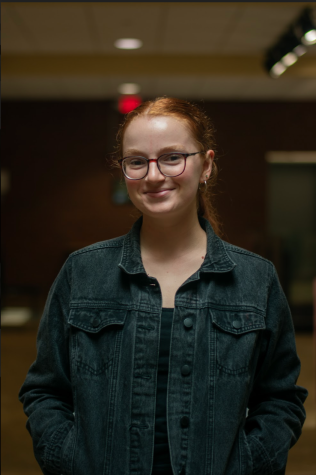Beyond Ramen: A series on the experience of eating as a college student
October 8, 2021
Last year was a tough one for all of us. Whether you were a professor trying to engage students through a monitor, a parent missing a kid after spending an unimaginable amount of time completing puzzles together or a first-year student like me starting school in a new state, we all experienced an unfamiliar kind of stress and loneliness. College students, in particular, were tasked with not only tackling the usual to-do lists but also trying to keep ourselves healthy in a pandemic. This stress found its way into a lot of different areas of my life — the most unexpected of which was my food.
In the first few weeks of fall 2020, I barely thought about my meals. I was preoccupied with getting settled in my dorm, in my classes and in Pittsburgh. I seemed to have just enough mental space to remember to run to Anderson Dining Hall at least twice a day and bask in the funky scent of the compostable takeout boxes as I ate at my desk.
As time went on and I got used to my schedule, I found the space to think about what I was eating. It started with little thoughts like, “Hmm, there is no vegetarian protein option at dinner tonight.” I noticed how I hadn’t eaten breakfast — very uncharacteristic for me — in a week because the dining hall stopped morning service before I got out of my first class. My lunch most days consisted of a granola bar. My dinner was almost always pasta, and I got “hangry” at 3 p.m. on the dot each day. I started drinking milk for the first time in ages, hoping it was supplemented with iron and vitamin D. I dreaded the weekends because dining hall hours and offerings were extremely limited. If I woke up at my normal time, on the earlier side for an 18 year old on a Saturday, I knew I would feel shaky but still have to walk off campus for a full meal. My thoughts turned into worries, and my worries turned into a deep anxiety surrounding food.
Students and food insecurity
Recent surveys estimate that between 60% and 70% of university students experience food insecurity during their time at college. Student food insecurity has remained largely unimproved or worsened in the wake of the COVID-19 pandemic. What’s even more alarming than this data is that most college students do not recognize or are not given the tools to name their food insecurity. Talking about our personal consumption in terms of access is not normalized, and we infrequently find ourselves comparing our eating habits. If we did, we might see some concerning patterns. However, we also might discover ways we can address the issues we face together.
Last year when I was struggling to remedy my food anxiety, I desperately wanted to ask peers what they were doing. I wanted to know if other students were as frustrated by the food at the limited dining venues on campus as I was. I wanted to know where they did their grocery shopping (if they could). I wanted to know how they cooked in a communal kitchen. I wanted to know what they stocked in their Microfridges. I wanted to know which meals kept them full but didn’t make them late to class. I wanted to know how everyone was eating.
Exploring food together
In this new series for the Communiqué, my goal is to start an ongoing conversation about eating in college. My motivations are partially selfish — I want my questions answered, too, and I want guidance — but I also love a good food story and hope to share that love with readers. No matter where you are from, it is often hard to be away from home — especially during a pandemic. Food brings us together. Food brings us into ourselves. Food brings us home.
So how, then, do we go about talking about food as college students? Let’s do it here. Email me, [email protected], if you have a food story you want to share. Tell me how you season your pasta, or how your parent bakes the best pastries, or how you made an entire Thanksgiving meal in your apartment oven. Be it short and sweet or long and complicated, I want to hear it.








